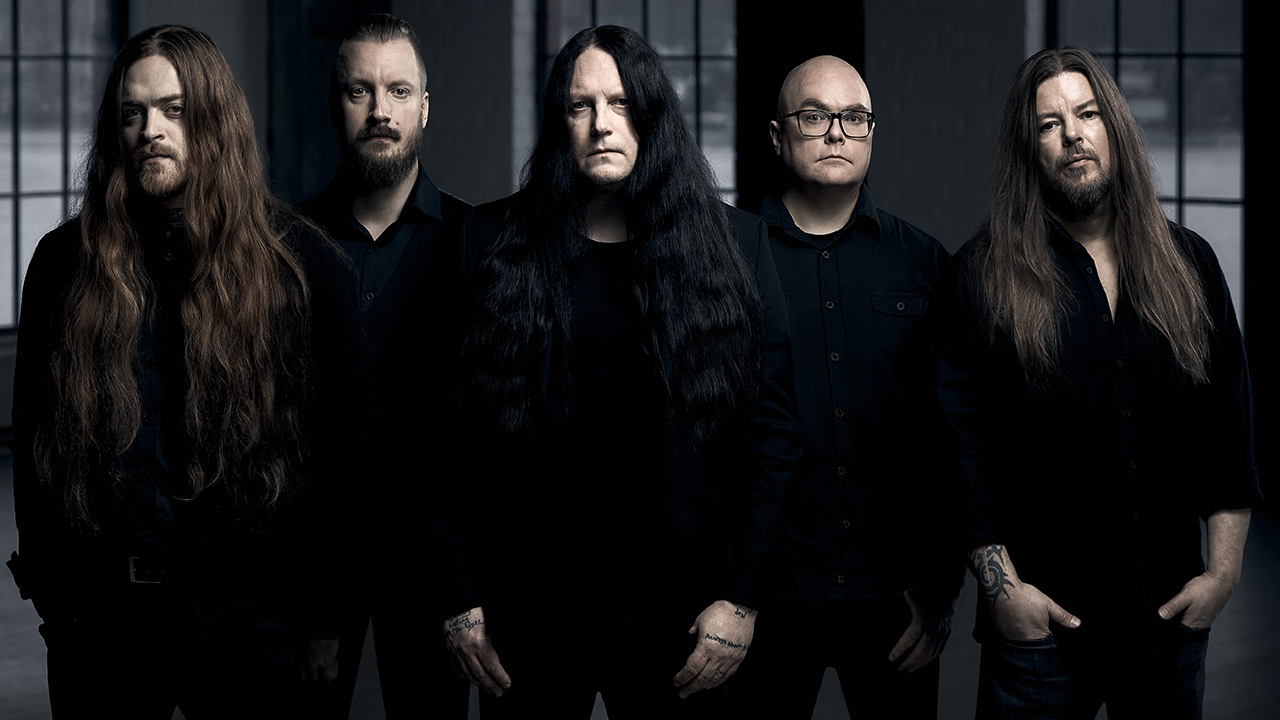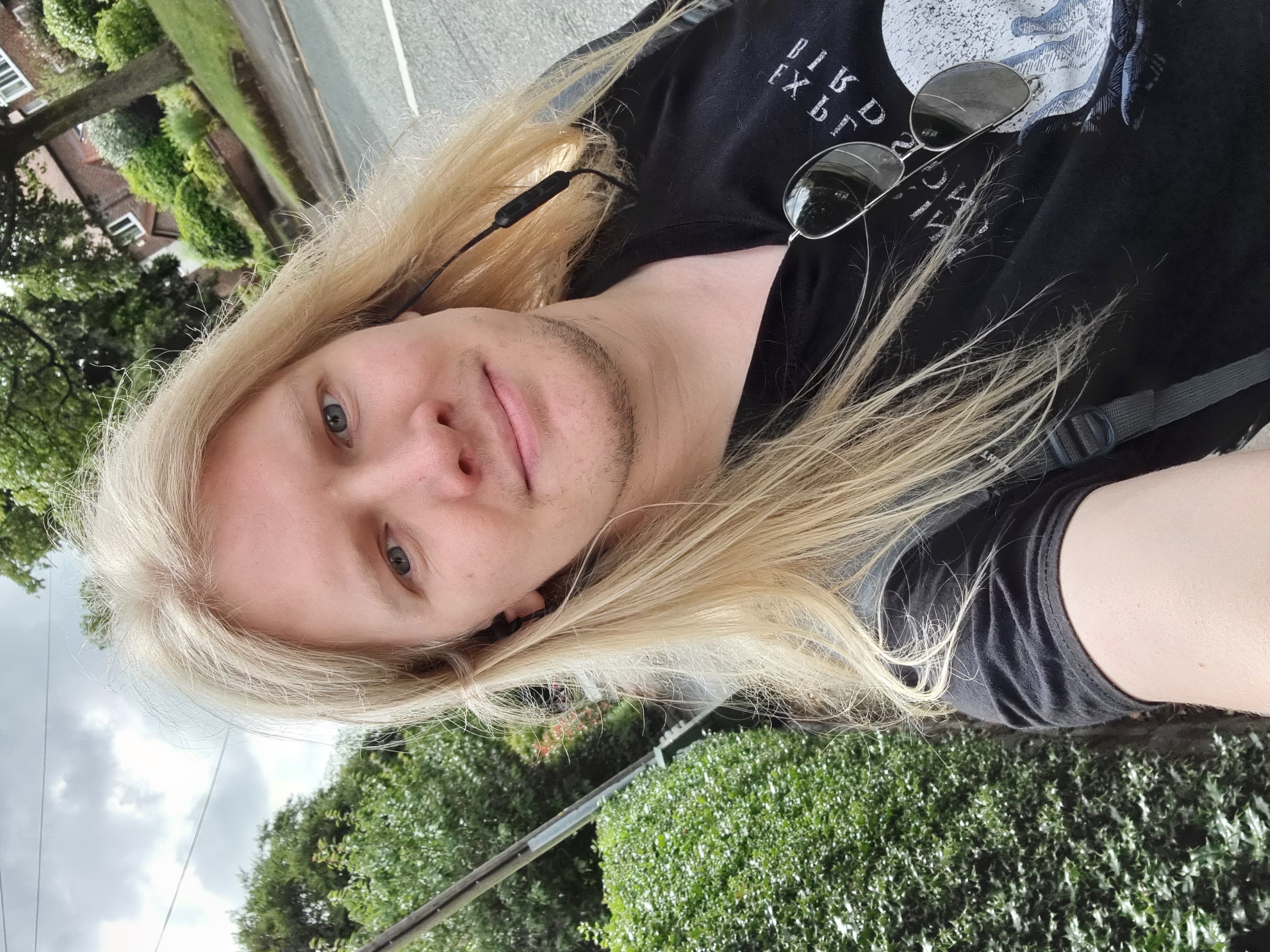“I had a nightmare 15 years ago and I still remember being so frightened… I decided to finally let it guide me in a musical realm”: Jonas Renkse steers the new-look Katatonia towards a different darkness
Nightmares As Extensions Of The Waking State, their first album without Anders Nyström, embraces first takes, shelved ideas and outside influences – and hints at how they might use more electronic elements in the future

Select the newsletters you’d like to receive. Then, add your email to sign up.
You are now subscribed
Your newsletter sign-up was successful
Want to add more newsletters?

Every Friday
Louder
Louder’s weekly newsletter is jam-packed with the team’s personal highlights from the last seven days, including features, breaking news, reviews and tons of juicy exclusives from the world of alternative music.

Every Friday
Classic Rock
The Classic Rock newsletter is an essential read for the discerning rock fan. Every week we bring you the news, reviews and the very best features and interviews from our extensive archive. Written by rock fans for rock fans.

Every Friday
Metal Hammer
For the last four decades Metal Hammer has been the world’s greatest metal magazine. Created by metalheads for metalheads, ‘Hammer takes you behind the scenes, closer to the action, and nearer to the bands that you love the most.

Every Friday
Prog
The Prog newsletter brings you the very best of Prog Magazine and our website, every Friday. We'll deliver you the very latest news from the Prog universe, informative features and archive material from Prog’s impressive vault.
Jonas Renkse is forging new landscapes in Katatonia’s gloom-laden prog metal world. Following the unexpected departure of founding guitarist Anders Nyström, a new-look line-up has released Nightmares As Extensions Of The Waking State. The vocalist and songwriter tells Prog about the vivid dream that inspired the album, and his plans for the band’s new incarnation.
A lot has happened since Jonas Renkse and Anders Nyström began writing the first Katatonia music – a raw and melancholic take on death/doom metal – in 1991. The vocalist and guitarist quickly outgrew their studio-only two- piece origins to become one of Scandinavia’s contemporary metal greats.
Their sonic palette began to include more progressive peaks and tender lulls. Renkse’s growled vocals were left behind and a greater level of sophistication was mixed in. Two career-redefining releases, Dead End Kings (2012) and The Fall Of Hearts (2016) mark major points in their evolution.
Then shockwaves were made in March when Katatonia announced Nyström’s departure, after 34 years and 12 albums. It was, their statement ascertained, “a decision not taken lightly, but for everyone to thrive and move forward with their own creative preferences.”
But the guitarist soon indicated that the split was less than amicable “With one of us gone, Katatonia could and should have been mutually laid to rest while exploiting the freedom to continue in any desirable direction under a new name,” he said. “But with Jonas regrouping with new members, I no longer need to wait and see which way the wind is blowing.”
There had been talk that Nyström was upset that the band’s earlier, heavier material had been neglected in their live sets, while he became an increasingly peripheral figure. He hasn’t had a writing credit on an album since The Fall Of Hearts, with its two successors – 2020’s City Burials and 2023’s The Sky Void Of Stars – written entirely by Renkse. And he hasn’t toured with the group since 2022.
Despite Nyström’s that both should established new projects and buried Katatonia for good, Renkse clearly feels he’s entitled to be in the driving seat. And with their 13th studio album, Nightmares As Extensions Of The Waking State, the vocalist is in poll position to continue Katatonia’s legacy.
Sign up below to get the latest from Prog, plus exclusive special offers, direct to your inbox!
“It’s been a very fruitful partnership,” he says of the era-ending split. “I’m happy that we got to live this dream that we had together. What we’ve created together can’t be taken away from us. But some relationships go on for a long time, and maybe you don’t realise that you’ve grown apart.”
He’s understandably unhappy about his conversation with Prog dwelling on negatives when he has a new album – once more penned alone – to promote. But as talk turns to the new era, including guitarists Nico Elgstrand (Entombed AD) and Sebastian Svalland (Letters From The Colony), further cracks in the Renkse-Nyström union show like wrinkles on a face.
“I would love for the other guys to participate in the songwriting,” he says of what’s on the horizon. “I always encourage it prior to every new album, but somehow in the last 10 years, there’s not really been anyone stepping up to do it.”
Elgstrand had deputised for Nyström on The Sky Void Of Stars tours, and that made hiring him full-time an “easy decision,” Renkse says. But it compounds the theory that Nyström’s growing disdain for the direction of the band is the cause for the separation. He’s likely to return to the band’s death metal roots; while Renkse wants to continue exploring the dark-yet-uplifting, ever-shifting soundscapes of the past few albums.
Nightmares again showcases what he’s capable of writing. Lyrically it explores “things in waking life that could be perceived as nightmares.” It’s a very guitar-driven album, and thoughhe says it wasn’t a conscious reaction to Nyström’s departure, it provided ample opportunity for the new guitarists to help illuminate the band’s path.
“Sebastian was the guy that I had my eyes on,” Renkse says of his other new recruit. “When he tried out we were overwhelmed by his capabilities, both as a person and as a guitar player. His solo in The Liquid Eye is a favourite of mine. When he started playing with us he said, ‘I’m not a lead guitarist, I’ve never played a solo before,’ but I felt that he had the potential for that.
I always thought a first take couldn’t be better than a fifth. But there are so many first takes on this album
“He’s got a really good tone and he’s got the technique to play solos – he’d just never done it before. When I said I wanted him to play a solo on the song, he was like, ‘I don’t know if I can do that.’ A few days later he sent me that solo and I thought, ‘Wow, this is so tasty!’ It’s not some shredding solo, but it shows his musicality in a short little section.”
He continues: “There are parts on this album where Nico actually shines through as Nico the guitarist, not just some session guy that’s able to play anything you throw at him. He has a little bit of a noisier solo on In The Event Of; I thought the first solo he wrote was too melodic – too nice.
“It sounded too good. I wanted him to show more feeling than technique, and he totally improvised what you hear on the album with his first take. It sounds harsh. He’s doesn’t know exactly where he’s going, which is what makes it so good.”
Renkse was keen for both guitarists to exhibit freedom when writing their solos – their only creative contributions – and it’s proved to be a learning curve for the vocalist too. “I’m sort of a perfectionist,” he admits. “I always thought a first take can’t be better than a fifth. But there are so many first takes on this album, with vocals also, that we went back to it and said, ‘This is the one.’ There’s something about the first takes that can work so well.
“With Katatonia, it’s all about the flow of the song. It’s so much fun when you find a flow and have those magic moments where everything falls into place. There are few things that can beat that for me. Some songs kind of write themselves; some songs you have to work harder with.
We’ve been trying to integrate electronic music with our metal sound for some time… I’d love to do more
“The flow didn’t come with Lilac at first. That first riff has a difficult drum beat to it, which made it hard to decide what kind of song I was writing – but I really liked it. It was a puzzle I wanted to solve. Without perseverance, you’re going to end up with a lot of song ideas in the bin and a lot of potentially nice stuff is being wasted.
“When my kids start an Xbox game they’ve never played before, they lose interest immediately because they don’t know how to play it. I say, ‘You can’t become good at something unless you do it for a longer time.’ That’s the difference between kids and musicians who have been struggling for 30-plus years. I’ve learned the hard way that you need to practise!”
Despite being a guitar-driven album, the surprise highlight on Nightmares is a song that has no guitars at all. Efter Solen finds him singing in his native Swedish over a sea of keyboards. It’s also the first Katatonia song to feature a writing credit from someone not in the band.
“I wasn’t thinking about it being a Katatonia song in the beginning,” Renske confesses. “I wrote it with a friend of mine, Joakim Karlsson, who’s in a Swedish black metal band called Craft. We share a love for electronic music and we’ve been doing music together for a long time – stuff that hasn’t ended up anywhere.
You can’t get carried away in the soundscape – you have to find the core of a song and a reason to write it
“We started the song maybe 12 years ago. While I was writing this album, he reminded me of it and I thought, ‘It’s too good to let go of.’ He gave me his blessing to use it – but made me keep the Swedish lyrics! It’s a curveball song and it’s one of my favourites on the album. It’s beautiful because it’s so different from anything we’ve ever done.”
He’s willing to put a Katatonia lacquer on more electronic experiments in future, but only if such a sidestep is warranted. “We’ve been trying to integrate it with our metal sound for quite some time now, and I’d love to do more. It’s challenging, and it’s super-rewarding when it works.
“But you can’t get carried away in the soundscape – you have to find the core of a song and a reason to write it before it actually ends up being good enough for an album.”
One concept that felt tailor-made for Nightmares is its delightfully dark closer, In The Event Of. “Lyrically, it’s the song that gave the album its title,” Renske says. “I was trying to write what I’d experienced in a nightmare a long time ago. Usually, dreams are hard to remember, but I had this one 15 years ago and I still remember being so frightened – vividly.”
The song and the record end with the haunting line, ‘Mothers waiting in rows for the shadows of their children,’ repeated twice and cutting deeper each time. “There was a takeover happening in the nightmare,” he explains. “I wouldn’t say it was aliens, but it wasn’t natural.
“I was walking outside and the sky, all of a sudden, was full of dark clouds. There were flashes of red lights behind them and chains coming down from the skies. At the end of the nightmare, I could see fences with mothers behind them; I knew they were waiting for kids who’d been taken somewhere. They didn’t know if they would come back.
“That’s what triggered that line. It’s a horrible thought. When I realised I wanted to write a song around it, I knew I wanted it to be really heavy, with dynamic mellow parts. It’s another one of my favourite songs on the record. I’m really happy that I made the decision to actually let that fucking horrible dream guide me into a musical realm.”
You can usually find this Prog scribe writing about the heavier side of the genre, chatting to bands for features and news pieces or introducing you to exciting new bands that deserve your attention. Elsewhere, Phil can be found on stage with progressive metallers Prognosis or behind a camera teaching filmmaking skills to young people.
You must confirm your public display name before commenting
Please logout and then login again, you will then be prompted to enter your display name.






